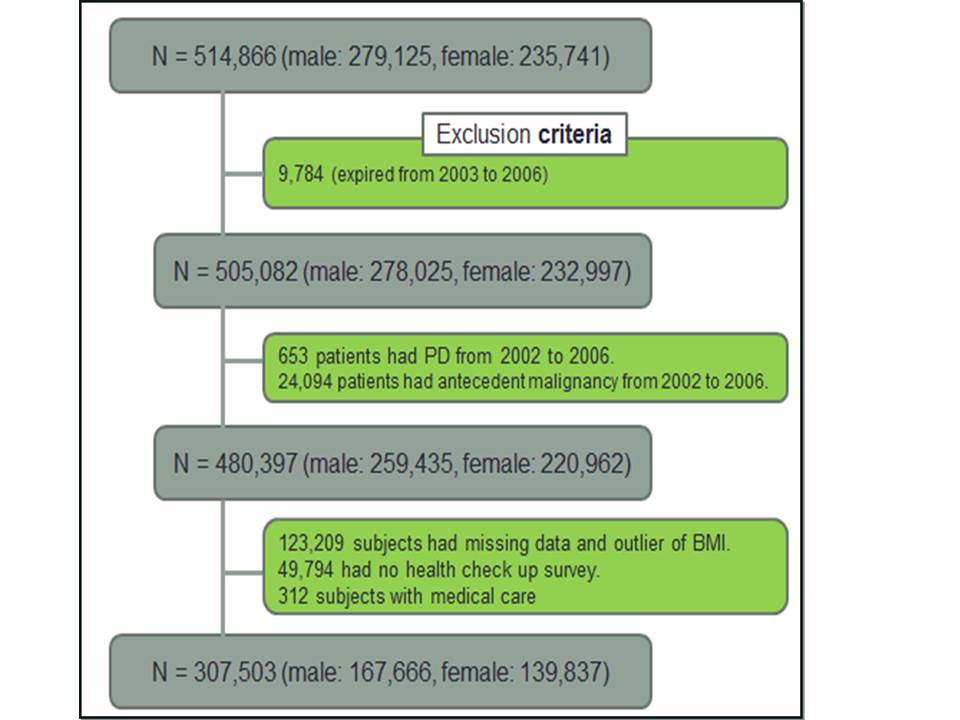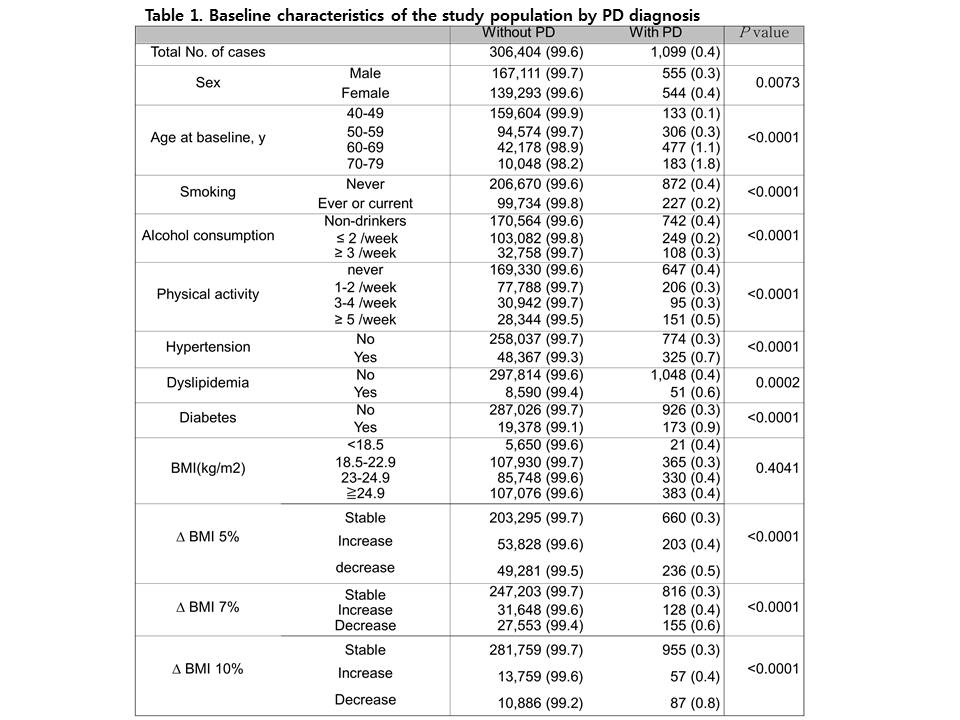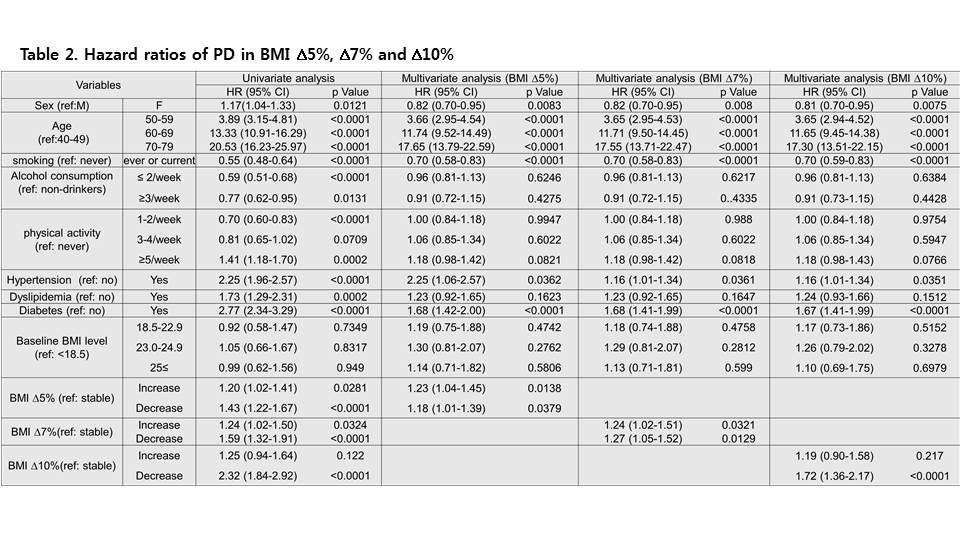Session Information
Date: Monday, June 5, 2017
Session Title: Epidemiology
Session Time: 1:45pm-3:15pm
Location: Exhibit Hall C
Objective: Our aim is to show the association between BMI and risk of PD and to evaluate how change in BMI is associated with occurrence of PD among incident PD cases from population-based cohort study.
Background: Aging is characterized by modification of body mass index (BMI), has been described as an independent factor for many aging related disease. Previous prospective studies have showed conflicting results regarding the association between Parkinson`s disease (PD) and BMI level preceding the disease. Several studies suggested that PD had a lower BMI than control subjects. On the other hand some of them showed a trend to an increased disease risk for overweight or obese people.
Methods: This retrospective, longitudinal, population based cohort study used National Health Insurance Service-Heal Screening cohort (NHIS-HealS) 2002-2013, which was released by the KNHIS in 2016, comprising 514,866(10%) random subjects who were selected from participants received health checkup from more than 40 years to 79 years in 2002 and 2003 without a history of PD. Finally, we enrolled 307,503 for analysis.[Figure 1] These subjects were followed-up until 2013. All analyses were performed with SAS 9.4. We compared demographic data using Chi-square tests. Cox proportional hazards models were used to estimate the associations of BMI change and to obtain Hazard ratios (HR).
Results: During a follow-up period of 12 years, 555 male and 544 female developed incident PD. The mean age at the time of diagnosis was 68.9 years (±9.3) in male and 70.46 years (±8.0) in female.
In multiple adjusted analysis, no significant associations were found baseline BMI and risk of PD. However, in BMI∆5% and ∆7%, compared stable BMI, the decreased change of BMI and increased BMI groups were at increased risk of PD. In BMI∆10%, compared stable BMI, the decreased BMI group was at increased risk of PD.[Table 1 & 2]
Conclusions: Our findings suggested that changes in BMI reflected an increased risk of PD regardless of baseline BMI. Future prospective studies with a good control for potential confounding factors are needed.
To cite this abstract in AMA style:
J. Lee, J.H. Kim, J.H. Cho, G.S. Kim, J.H. Lee, P.H. Lee, Y.H. Sohn. Body mass index, change in body mass index and risk of Parkinson`s disease [abstract]. Mov Disord. 2017; 32 (suppl 2). https://www.mdsabstracts.org/abstract/body-mass-index-change-in-body-mass-index-and-risk-of-parkinsons-disease/. Accessed December 27, 2025.« Back to 2017 International Congress
MDS Abstracts - https://www.mdsabstracts.org/abstract/body-mass-index-change-in-body-mass-index-and-risk-of-parkinsons-disease/



